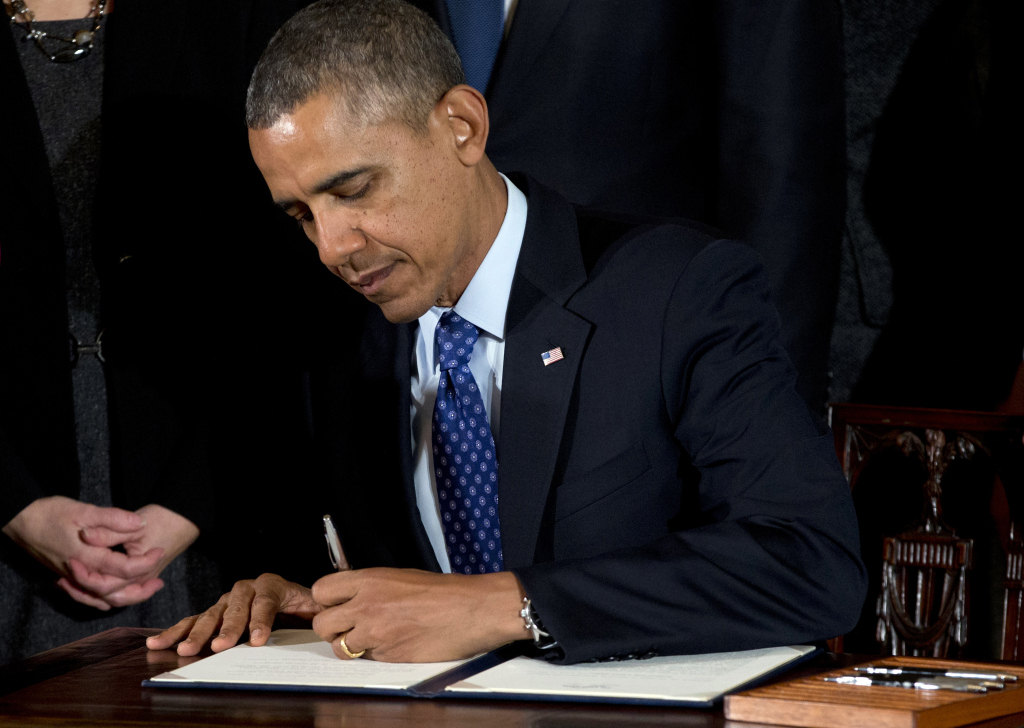In a bizarre confluence of events, Seattle University has established a new board designed to discuss the way that sexual misconduct is discussed and handled on campus. The Obama administration has also expressed an interest in addressing the very real threat of sexual assault that faces millions of Americans.
Sexual assault has pervaded society as a largely silent epidemic. However, awareness appears to be spreading.
Most recently, President Obama and Vice President Biden released the Not Alone initiative, which provides information and resources to students and schools that explains ways to respond to and prevent sexual assault on college campuses.
Obama proudly states on the opening page of the site, “Perhaps most important, we need to keep saying to anyone out there who has ever been assaulted: you are not alone. We have your back. I’ve got your back.”

President Barack Obama signs a memorandum creating a task force to respond to campus assault during an event for the Council on Women and Girls in the East Room of the White House in Washington.
Not Alone is a subset of the White House Task Force to Protect Students from Sexual Assault, launched on January 22 of this year. The initiative is committed to ensuring the protection (of) and support (for) sexual assault survivors by engineering and mandating supportive legislation and advocating public awareness of the issue.
Biden, who is accredited most for engineering and managing the initiative, puts the focus of the initiative on reducing dating violence of young women ages 16-24. He cites this demographic as facing the highest rates of dating violence and sexual assault.
Action like this was first sparked in June, 1990, when Biden, (who was then a Senator) introduced the Violence Against Women Act (VAWA) to Congress. This bill established new federal crimes of interstate domestic violence and stalking, doubled penalties for repeat sex offenders, and started the conversation on what laws would be instituted at the state level to protect victims. Biden boasted on the 1is2many website that since the Violence Against Women Act was passed in 1994, rates of domestic violence have decreased by over 50 percent.
In response to the launch of the task force, President Fr. Stephen Sundborg, S.J., organized and appointed members to the Seattle University Sexual Misconduct Advisory Board (SMAB). Comprised of undergraduate and graduate students, faculty and staff, Sundborg describes the board as providing “an ongoing review of university policies, procedures, practices and programming relevant to sexual misconduct and will promote open and honest dialogue within our campus community around this critical issue.”
To coincide with April being sexual assault awareness month, the board held their first meeting on April 9. Chaired by Seattle U’s Human Resources department Title IX Coordinator, Helaina Sorey, board members received the board’s “charge” or purpose from the Sundborg.
Sorey speaks to the review nature of the board when she says, “The advisory board is not saying ‘What should we create?’ but ‘What is available? Is that enough? Should there be more? Which populations are not being served? Maybe the training is too old. Maybe update it.’ So taking an assessment of what’s being offered,” Sorey said.
A concrete outcome of the board’s initial meeting was a campus wide email signed by Sorey that provided students with some “sobering” statistics on the prevalence of sexual assault. Sorey said the intent was to empower students to take action to prevent it and invite their engagement in upcoming events that support the cause.
Sorey speaks to the direct implications of sexual assault to students at Seattle U when she says, “How do we help students to see that this could impact them? Understandably, we always think that this could happen to someone else rather than us. How do we bring this forward to
their attention?”
Sorey said the need for the board saying, “We’re really looking at this as a community issue, a campus community issue. We have a responsibility to our campus community… We’re inviting the community into the conversation. It is very much a part of our mission in terms of collaboration. It (collaboration) extends to our care of students. It’s a way to ensure we’re actually doing what we’re intending to do.” Currently the board will meet quarterly.
Sorey is hopeful to the future of sexual awarebess.
“Thankfully I think the pendulum has swung that anything other than consent is wrong and a crime. I think that your generation is bringing this to a place where there is awareness
and voice.








